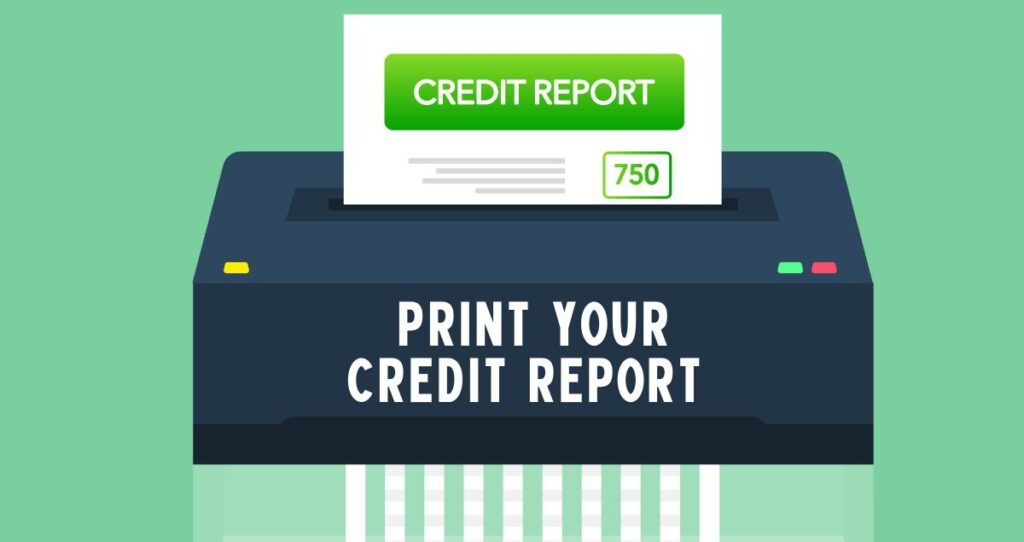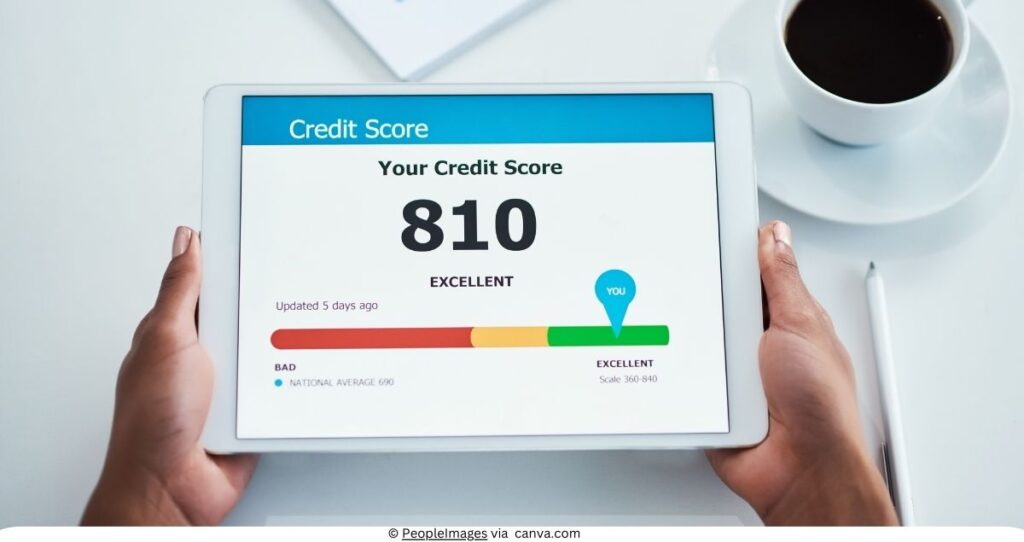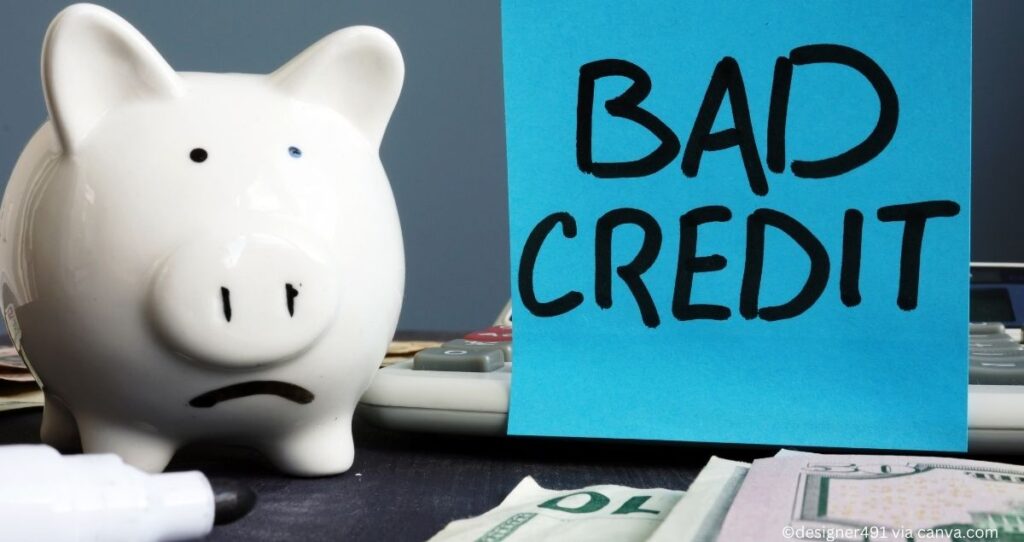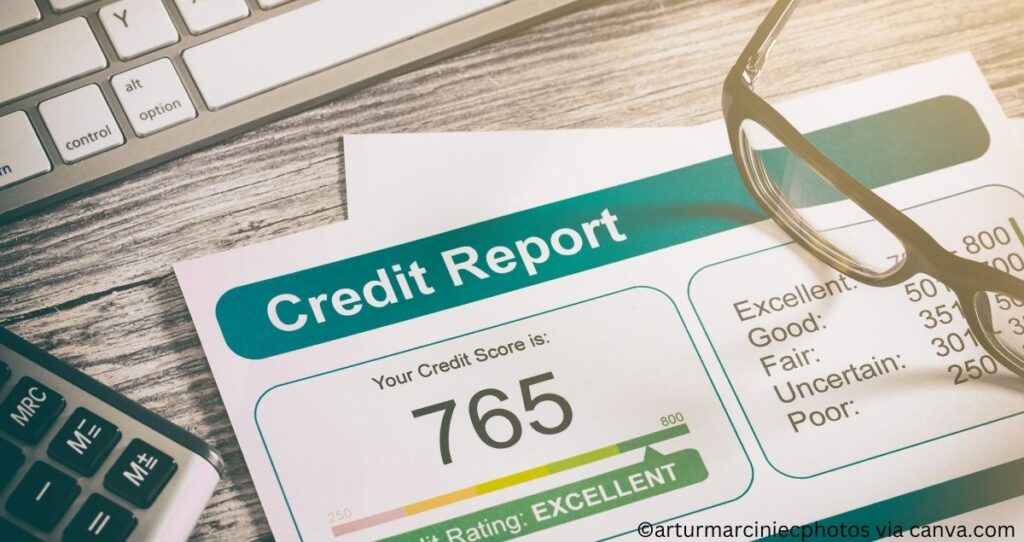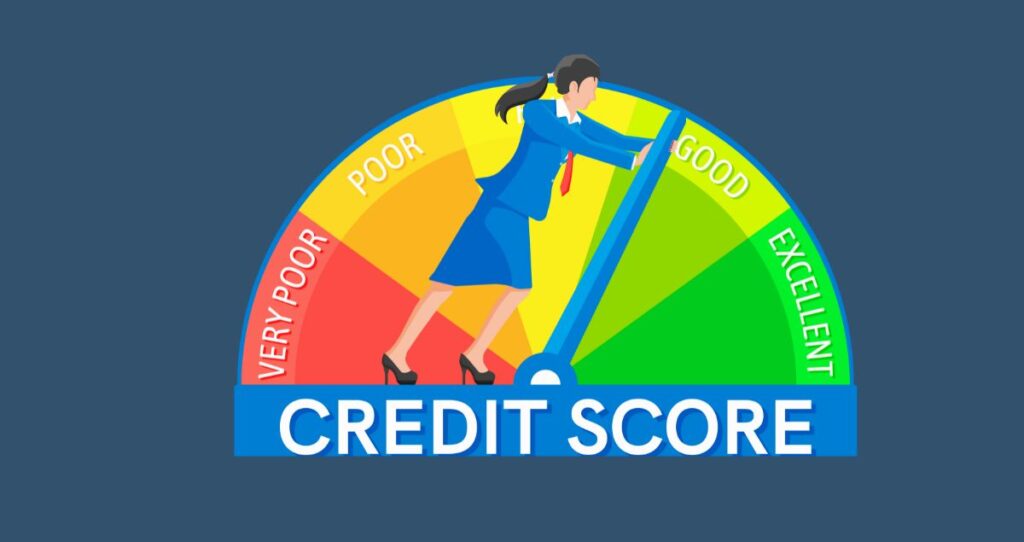Lenders use your credit score to determine if you qualify for business services such as loans, credit cards, and mortgages. Some employers might also consider your credit in your job application process. Depending on the job requirements, you can be denied a job because of bad credit. Generally, a good credit score indicates that you are financially responsible and can be trusted for loans, business services, and jobs.
On the other hand, a bad credit score can be a red flag for many employers and lenders as it signals high risk due to financial hardships and bad money habits. If the job you are applying for requires credit checks such as jobs in the financial sector and those with security clearance requirements, your employer might deny you employment if you have bad credit.
While some employers might not hire you due to having bad credit, not every job requires a credit check. Additionally, some cities and states such as Oregon, Washington, Nevada, and Delaware prohibit the use of credit checks on candidate employment opportunities.
Here is how your credit score affects your job application and how to get hired with bad credit.
What is a credit score?
Many people get confused with a credit score but it is easy to understand. Simply put, a credit score is a three-digit number that reflects your credit account activities. The range of a credit score is between 300 and 850.
A good credit score allows you to qualify for loans and credit cards at lower interest rates and favorable terms. You can also qualify for more money due to having an excellent credit score. Many businesses also give you better services and discounts when you have a good credit score. For example, your landlord can waive a security deposit on your apartment if you have a good credit score. Where required, you can also get hired for a job due to having a good credit score compared to candidates with bad credit.
On the other hand, a bad credit score indicates that you are not trustworthy especially if you have a long history of missed payments. Lenders typically deny you credit when you have a bad credit score or charge you a higher interest. For example, if the job you are applying for requires a credit check, especially in financial services or government jobs that require clearance, you might be denied a job because of bad credit.
Related post: How to get an 800 credit score the easy way?
How is your credit score calculated?
Before I walk you through how your credit score affects your job application, let’s dig deeper into credit score calculation to cover the basics.
A credit score is calculated based on information from your credit reports. This is how it works. Your lenders and businesses you deal with submit your credit activities to major credit reporting agencies which are Equifax, Experian, and TransUnion. Credit reporting agencies then compile all that information into a credit report.
To calculate your credit score, credit scoring agencies use information from your credit reports such as payment history, credit utilization, the amount you owe, and negative items. Each lender uses its credit scoring models and weights are applied to factors that affect your credit score. This translates to having different credit scores from multiple scoring agencies.
Two major types of credit scoring models
Even if you see credit scores everywhere, there are 2 major types of credit scoring models. Each model applies different weights to information from your credit reports.
FICO score model
The first type of credit score is the FICO score which is calculated using the FICO scoring model. FICO stands for the Fair Isaac Corporation and it was the first to develop a way to calculate credit scores using information from credit reports. The FICO scoring model has multiple versions such as FICO 8, FICO 9, FIC10, and FICO 10T. According to Investopedia, there are older versions of this model but FICO 8 is the most widely used to calculate your FICO score.
FICO score considers 5 different factors that affect your credit score and each factor is given a different weight based on its level of importance for this score. These factors include payment history which accounts for 35% of your credit score, credit utilization for 30% of your credit score, age of your credit for 15% of your score, hard inquiry for 10% of your credit score, and credit mix that accounts for 10% of your credit score.
VantageScore model
The second major type of credit score is your Vantage score calculated using the VantageScore model. The vantage score is also between 300 and 850 and the three major credit bureaus developed it. Similarly to the FICO model, different weights are applied to information in your credit reports to calculate your Vantage score.
VantageScore model has different versions that include VantageScore 1.0, VantageScore 2.0, and VantageScore 4.0. According to CreditKarma, VantageScore 4.0 with VantageScore 4.0 is the latest model.
Factors that affect your VantageScore include payment history, credit utilization, available credit, recent credit accounts, credit mix, and the amount you owe. The payment history accounts for 40% of VantageScore, credit utilization accounts for 20% of VantageScore, the age of your credit together with credit mix account for 21% of VantageScore, the amount you owe takes up 11% of your score, available credit account for 3% of your score, while recent credit takes up 5% of your score.
Read more: What is a VantageScore and how does it work?
Can you be denied a job because of bad credit?
The short answer is yes, you can be denied a job because of bad credit if a credit check is part of the job you are applying for. Many companies check information from your credit report such as bankruptcy filings, collections, etc, together with background checks as part of the application process.
A good credit score shows you are responsible and can be trusted while a bad credit shows you are not responsible which can lead to getting denied a job. For example, having a lot of late payments on your credit report shows you are financially irresponsible which can impact your job performance. Carrying too much debt can also mean you are facing financial hardships which poses a major risk to the company.
What states prohibit credit checks on job applications
Yes, it is possible to be denied a job due to having bad credit. However, the rules regarding using credit checks as a deciding factor for employment differ from one state to another and by companies. Among the 50 states in the U.S., only 11 states prohibit the use of credit checks as a deciding factor in most cases of employment. According to Pacific Debt Relief, Colorado, Hawaii, Maryland, California, Maryland, Oregon, Washington, Nevada, Delaware, Illinois, and Connecticut prohibit using credit checks discrimination for employment opportunities.
If you reside in states other than these 11 I just listed above, companies can deny you a job if you have bad credit. To get hired in states where companies check applicants’ credit as part of background checks, view your credit report and credit score before applying for these jobs.
Can bad credit disqualify you from a job?
Yes, bad credit can potentially disqualify you from a job. Some employers, especially those in the financial sector, consider a candidate’s credit history during their hiring process. Generally, poor credit shows a sign of irresponsibility or financial stress which could impact job performance. However, laws vary by location on whether employers can check your credit and what they can use that information for.
Currently, only 11 states limit the use of credit checks to deny a job to a candidate. These states include Colorado, Hawaii, Maryland, California, Maryland, Oregon, Washington, Nevada, Delaware, Illinois, and Connecticut. However, a credit check might be required in these states depending on the job you are applying for. For example, a credit check might still be required if you are applying for a job in law enforcement or where a high clearance is needed.
According to the Consumer Financial Protection Bureau (CFPB), the employer must give you a copy of the credit report used to deny you a job because of bad credit. Additionally, the company must provide you with “A Summary of Your Rights Under the Fair Credit Reporting Act” before denying you a job due to information from your credit report.
Can an employer reject you for credit score?
Yes, an employer can reject you based on your credit score. Employers in certain industries may perform a credit check as part of their hiring process, especially if the position involves handling company finances or sensitive financial information. If your credit score is poor, it may indicate to potential employers that you could pose a risk due to financial instability or irresponsible financial behavior.
However, you should note that employers will notify you if a credit check is required before conducting a credit check. Additionally, employment laws on credit checks vary by state, and some states prohibit employers from using credit information in employment decisions.
Do jobs check your credit?
While many companies check credit in conjunction with their background checks, not every job requires a credit check.
According to Nerd Wallet, a report from the Professional Background Screeners and HR.com survey of human resources professionals in 2021 found that credit or financial checks are included in 51% of employer background screening for companies in U.S. locations.
Can I get a job with debt?
yes, you can get a job with debt. If you have too much debt and are applying for a job that requires a credit check, however, some employers might view that as a risk toward your employment leading to getting denied a job due to bad credit.
How much debt is too much for a job?
While there is no specific debt amount, most employers use your debt-to-income ratio to assess the risk of doing business with you. Your debt to income refers to the ratio of your monthly debt obligation to your monthly gross income, expressed as a percentage.
For example, if your monthly debt payment is $2,500 and your gross income is $4,000, your debt-to-income ratio is 62.5%. How much debt is too much for a job? The value varies from one employer to another. But, having a debt-to-income ratio equal to 43% or higher is considered too much debt.
Your DTI ratio will also impact your ability to qualify for loans. Most lenders will not approve your loan application if your DTI ratio is over 42%. A DTI ratio of 28% and lower is considered good when applying for loans, credit cards, and mortgages.
You might also like:
- What is a good credit score?
- What is a good credit score to buy a house?
- What is a good credit score to buy a car?
Can an employer see how much debt you have?
If your job requires a credit check, your lender will see your credit accounts when they pull your credit reports. That is your employer can see all of your credit accounts such as credit cards, mortgages, loans, and outstanding balance on each debt. If required, the purpose of a credit check is to help employers figure out if you meet the job requirements.
How to improve your credit score to get a better job?
If you are in a sector where a credit check is imminent, having a good credit score will be a great way to get hired fast. Here are tips to improve your credit score and get hired fast.
- Pay your bills on time to have a track record of on-time payments as payment history accounts for 35% of your credit score.
- Lower your credit utilization. Your utilization rate accounts for 30% of your credit score and keeping it under 7% boosts your credit score.
- Improve your DTI ratio. The debt-to-income ratio is the ratio of your monthly debt payment to your gross income. A high ratio indicates you rely on debt to cover your expenses which lowers your credit score. To have a good credit score keep your DTI ratio under 28%.
- Avoid excessive borrowing. Every time you submit a loan application, a hard inquiry appears on your credit report and your score drops by 5-6 points. To have a good credit score, have no more than one hard inquiry in any given 12 months.
- Become an authorized user of credit. Being an authorized user of a credit card account can help you boost your score since you benefit from positive activities from the account.
- Get a secured credit. If you have bad credit, having a secured credit card can help you rebuild it especially if you don’t qualify for other forms of loans.
- Refinance your loans to pay them off fast. When you refinance your loan, you replace it with another loan that has a lower interest rate and favorable terms. If your credit is bad due to bad loans, refinancing or consolidating them will be a great way to pay them off fast and build your credit.
Read more: 10 easy tips to improve your credit score fast
How do you explain bad credit to your employer?
If you have bad credit and are applying for a job that requires a credit check, you might need to do your homework before your interview date. Failure to explain why you have bad credit to the employer may result in a denial of employment.
Here are a few steps to explain bad credit to employers.
- Be honest. If your recruiter asks why you have bad credit, you should always be honest as lying about it can cost you your job down the road.
- Explain the circumstances that lead to getting bad credit. Having bad credit is not a crime. Not being able to justify why your credit is bad, however, might be seen as a red flag to employers. Always be ready to explain circumstances regarding your credit.
- Explain what you are doing to improve your credit. Lack of action always looks bad even if you are not applying for a job. During the interview, tell the recruiter what you are doing, your strategies, and the improvements you have made to improve your credit score.
- Elaborate on how credit-building skills you have learned can help you in your new role. Rebuilding your credit requires learning new skills such as financial management, practicing money habits, patience, and discipline. Explain to your employer how these skills can help you in your new roles.
Can my employer check my bank account?
During your job application or after getting hired, your employer might ask you to provide your bank account information which might include the bank name, routing number, and bank account information. The purpose of getting this information is only for payroll activities. Your paycheck can be directly deposited into your bank account instead of mailing a physical copy of your check every payment period.
While your employer can call your bank to verify your information in certain circumstances, your employer cannot legally access your personal bank account or view account balances without having consent from you and all account holders.
Which credit score is commonly used by lenders and businesses?
Most lenders and businesses widely use the FICO score compared to the VantageScore. FICO score is more flexible in offering industry-specific credit scores while Vantage does not. However, some lenders use VantageScore to loan money and business activities.
More job and credit score tips
How to secure your financial future after landing a job?
17 things to do after losing your job

